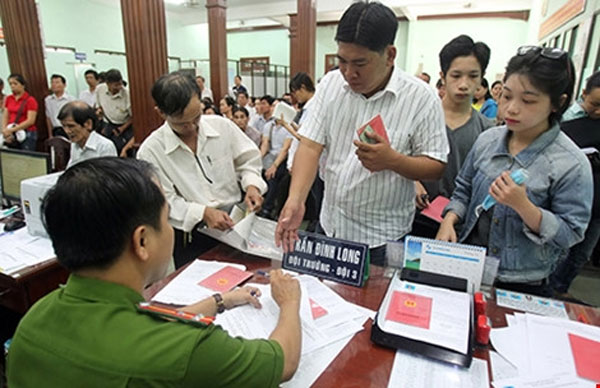VietNamNet Bridge – Viet Nam could improve migrants’ access to public services and employment by reducing the time and number of requirements needed for residents to get a household registration certificate, according to a report released on Thursday, June 16.

|
|
Viet Nam could improve migrants’ access to public services and employment by reducing the time and number of requirements needed for residents to get a household registration certificate. — Photo plo.vn
|
The report, which was implemented by the World Bank and Viet Nam Academy of Social Sciences, said the gap in the access to services and employment between those who owned permanent and temporary household registration certificates must be narrowed.
At least 5.6 million people in five cities and provinces, including Ha Noi, HCM City, Da Nang, Binh Duong and Dak Nong, did not have permanent registration certificates at the time of the study.
Most of them were facing difficulties accessing public schools, buying health insurance or even registering motorcycles.
Vu Hoang Linh, economist with the poverty and equity global practice of the World Bank, said that those who failed to get permanent certificates faced job discrimination in public agencies and companies.
Their children were less likely to be in school than those with permanent registration certificates. They also faced limited access to health care services.
Achim Fock, the World Bank’s Acting Country Director for Viet Nam, said the study showed that the household registration system had created inequities in the opportunities for Vietnamese citizens.
Reform was necessary to assure that migrants had the same opportunities to access to schools, health care and employment in the public sector. It would encourage people to move to cities and support the nation’s economic growth, he said.
Dang Nguyen Anh, deputy director of the Viet Nam Academy of Social Sciences, said the certificate system was no longer relevant for managing and controlling Vietnamese society. It should be replaced by a more scientific and modern tool to make people’s lives easier and more inclusive, he said.
Household registration certificates began 50 years ago as a tool for public security and migration control. Few countries - including Viet Nam, China and the former Soviet Union countries - maintain the system that is linked to social services.
Most countries in the world have a system to register living places, but they are not linked to the access of local services.
| related news |
|
Temp residents need to register Migrant workers struggle to enrol kids in schools Residence registration process creates ‘group' of urban poor |
Source: VNS